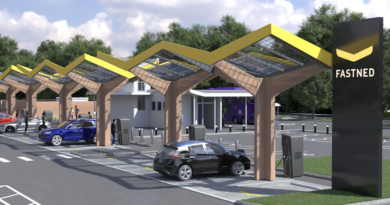Audi’s carbon neutrality roadmap: Electric vehicles only from 2026
Audi has announced plans to phase out internal combustion engines by 2033, with only fully electric models released from 2026.
The manufacturer wants to be a net-zero carbon emissions company by no later than 2050 and plans to offer more than 20 fully electric, battery-driven cars by 2025.
At the same time, Audi also wants to reduce the ecological footprint of its fleet by 30 percent as compared with 2015. It is also planning to make production at all of its sites carbon neutral by 2025, which has already been achieved at Audi Hungaria and Audi Brussels.
Production of the Audi e-tron GT, Audi e-tron, Audi e-tron Sportback and Q4 e-tron series and their delivery to customers are already carbon neutral, according to the manufacturer. It adds that all electric cars for the European and US markets have been delivered to customers as carbon-neutral products since the beginning of the year, too.
Audi is also calling for an expansion of renewable energies and is cooperating with energy providers, among others, and developing its own charging concepts. For example, Audi customers can already use the green power solutions offered by Volkswagen subsidiary Elli (Electric Life) to charge their cars at home, and for charging on the road, the IONITY charging network and many other charging point operator companies rely on green power.
Board of Management for technical development at Audi AG, Oliver Hoffmann, said: “We want to offer our customers a holistic electric driving experience. In addition to attractive models, we need to be able to offer widespread green electricity.
“We’re working hard to make carbon-neutral mobility possible. The expansion of renewable energy sources at an industrial scale is the next, logical step.”
To cover the charging processes that do not yet use green electricity, new wind and solar parks that will altogether generate around five terawatt hours of additional green electricity are planned for various European countries with several partners by 2025. This corresponds to an installed capacity of about 250 new wind turbines.
Audi says the objective is to increase the share of electricity our partners generate from renewable sources in conjunction with an additional increase in the share of electric cars on the road. “That means that our entire e-tron fleet in Europe will be climate neutral in the future,” added Hoffmann.
The first project, a solar park in the German state of Mecklenburg-Vorpommern, is being developed in collaboration with the German utility company RWE. The plant will come on stream in 2022 and is designed for a total capacity of 170 million kilowatt hours. Encompassing nearly 420,000 solar panels, it will be one of the largest independent solar parks in Germany. Further projects are to quickly follow.
Audi has also developed a charging solution that will primarily cover peak demand as a supplement to the basic coverage that is on the market. The concept calls for high-power charging (HPC) stations that can be reserved in advance to provide a high level of planning security. “Charging an electric Audi model only takes a little longer than a coffee break,” said Audi’s charging hub overall project manager, Ralph Hollmig.
The charging hub uses cubes which house charging pillars as well as used lithium-ion batteries for energy storage. The use of 2nd life modules from disassembled development vehicles gives the battery cells a new, sustainable purpose and boosts their suitability as ancillary storage for direct current.
Starting from 11 kW of power per cube via a standard 400 volt high-voltage connection, the Audi charging hub can already be operated.
At the pilot location, a total power input of 200kW is enough to be able to continuously fill three storage modules with a total capacity of 2.45 Mwh and charge them overnight – supported by additional photovoltaic modules on the roof. Each hub can be quickly transported, installed, and adapted to the particular location whilst being largely independently of local network capacities. The first Audi charging hub will go into operation in Nuremberg in the fall.






